Tiny House Communities In Virginia: Virginia is a state that offers a unique living experience for those seeking a simpler lifestyle. One of the ways this is achieved is through tiny house communities.
These communities are designed to promote sustainable living and often feature shared amenities such as community gardens, workshops, and recreational spaces.
Tiny house communities in Virginia offer a range of housing options, from DIY builds to pre-fabricated homes, allowing residents to choose a style that suits their needs and budget.
Many tiny house communities in Virginia are located in scenic areas, providing residents with access to outdoor activities and natural beauty.
Living in a tiny house community can be a great way to connect with like-minded individuals and build a sense of community while reducing your environmental impact. It’s an opportunity to live simply without sacrificing comfort or convenience.
If you’re considering joining one of these communities, it’s important to do your research beforehand. Look into the different types of tiny houses available and find the community that best fits your lifestyle and needs.

Benefits and Considerations of Living in Tiny House Communities in Virginia
Affordability:
One of the primary benefits of living in a tiny house community in Virginia is affordability. Tiny houses are significantly cheaper than traditional homes, both in terms of construction and maintenance costs.
The cost of living in a tiny home community is also lower than that of a regular home, which can help residents save money on rent or mortgage payments.
For instance, according to data from The Tiny Life, the average cost to build a tiny house is around $23,000 for a DIY project and $59,884 for professional construction.
In comparison, the median home price in Virginia was $291,000 as of 2021. This means that living in a tiny homes community can be an excellent option for people who want to own their homes without breaking the bank.
Community Living:
Another significant advantage of living in a tiny house community is the sense of belonging and community it provides. Residents can socialize with like-minded individuals who share similar values and interests.
They can participate in various events and activities organized by the community members. Living in such communities fosters social connections and creates opportunities for collaboration among residents.
It also promotes healthy relationships among neighbors as they learn to live together harmoniously while respecting each other’s privacy.
Also see: Tiny House Living Essentials
Eco-Friendly:
Tiny houses are environmentally friendly as they require less energy to heat and cool due to their small size. They use fewer resources during construction since they need fewer materials compared to traditional homes.
Moreover, they produce less waste during demolition or renovation since there isn’t much material involved.
Living in a tiny homes community promotes sustainable living practices since residents have access to shared resources such as gardens or composting facilities.
This encourages them to adopt eco-friendly habits that benefit not only themselves but also the environment.
Top pick
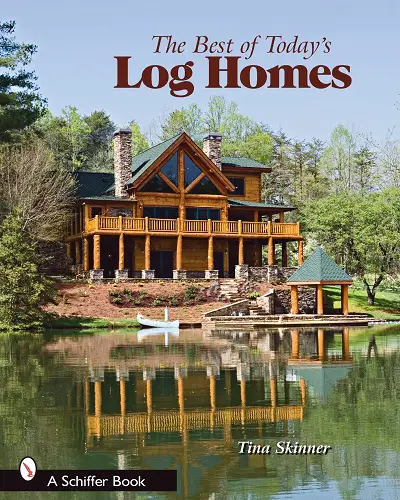
Editor’s choice
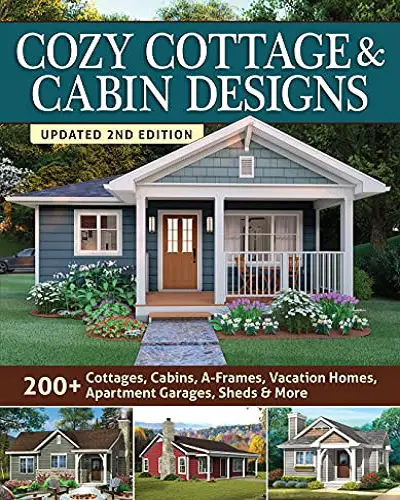
Best value
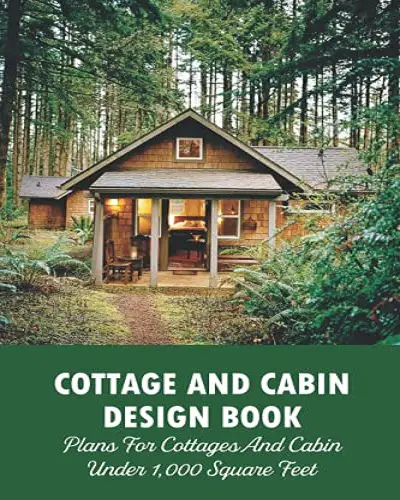
Minimalist Lifestyle:
Living in a tiny house requires downsizing possessions and adopting minimalist lifestyles which can lead to simpler yet more fulfilling lives with less clutter and stress.
Minimalism allows individuals to focus on what is essential while shedding unnecessary possessions and distractions. It also promotes mindfulness, creativity, and self-awareness.
Living in a tiny house community can help residents maintain their minimalist lifestyle by providing opportunities to share resources and collaborate with others to reduce waste.
This fosters a sense of responsibility towards the environment and encourages individuals to make conscious choices that benefit themselves and the community as a whole.
Zoning Regulations:
Before deciding to live in a tiny house community, it is essential to research zoning regulations in Virginia. Some areas may not allow tiny homes as permanent residences.
While others may have specific requirements for building codes and permits. It is crucial to ensure that the chosen location complies with local laws before investing time or money into building or renting a tiny house.
For instance, Virginia Beach only allows tiny homes as accessory dwelling units (ADUs) on existing properties, while Richmond requires them to be built on foundations and meet the International Residential Code (IRC) standards for safety.
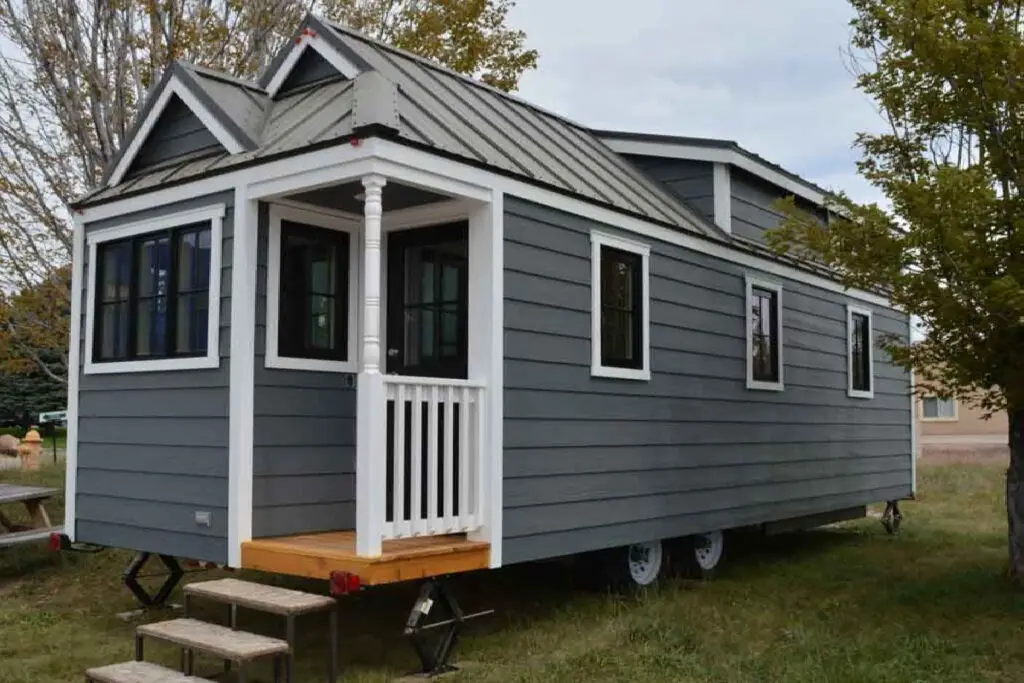
How much does a tiny house go for in Virginia?
The cost of a tiny house in Virginia can vary depending on several factors such as size, materials used, and location. On average, a tiny home in Virginia can cost anywhere from $30,000 to $100,000.
However, it’s important to note that the cost of a tiny house is significantly lower than that of a traditional home. Size is one of the most significant factors affecting the cost of a tiny house.
Generally speaking, the smaller the home, the less expensive it will be. A tiny house with an area of 200 square feet may cost around $30,000 while one with an area of 400 square feet may cost around $60,000.
Materials used are another factor that affects the overall cost of a tiny home. High-quality materials such as cedarwood or bamboo flooring may increase the price tag considerably.
Additionally, certain features like solar panels or composting toilets may also add to the final price. Location is yet another factor that affects how much a tiny house costs in Virginia.
Tiny homes located in urban areas tend to be more expensive than those in rural areas due to higher land prices and property taxes.
Some tiny house builders in Virginia offer financing options and payment plans to make purchasing a tiny home more affordable for buyers. These options allow buyers to pay off their homes over time instead of having to pay all at once upfront.
The cost of living in a tiny house community in Virginia may also include additional fees such as lot rental, utilities, and maintenance costs. Lot rental fees vary depending on location but typically range from $300-$500 per month.
Utilities like electricity and water are usually included in this fee but internet service is not always included.
Maintenance costs for a tiny home can vary depending on its age and condition but generally speaking they are much lower than those associated with traditional homes since there is less space to maintain.
When considering purchasing a tiny home in Virginia it’s important to do thorough research and compare prices from different builders and communities before making a decision. This will ensure that you get the best possible deal on your new home.
Also see: Plans For Shipping Container House

Legality of Tiny Houses and Communities in Virginia
Virginia has no statewide regulations for tiny houses, which means that it is up to individual counties and municipalities to determine their legality.
This can make it difficult for those interested in living in a tiny home to know where they can legally do so. In this section, we will explore the legality of tiny houses and communities in Virginia.
Zoning Laws
Some areas in Virginia have zoning laws that prohibit tiny houses. For example, Fairfax County requires that all homes be at least 200 square feet, which would make most tiny houses illegal.
Similarly, Arlington County only allows accessory dwelling units (ADUs) on properties that are larger than 6,000 square feet.
These restrictions can make it difficult for those interested in living in a tiny house to find a place to do so legally. On the other hand, some areas have embraced tiny houses as a solution to affordable housing and homelessness.
For example, Spotsylvania County recently changed its zoning laws to allow for “cottages” that are less than 400 square feet. The city of Richmond also allows ADUs on certain properties.
RVs and Mobile Homes
In some cases, tiny houses may be classified as RVs or mobile homes and subject to different regulations and restrictions. For example, if a tiny house is built on wheels and designed to be moved frequently, it may be classified as an RV by the state of Virginia.
This means that it would need to meet certain safety standards set by the National Fire Protection Association (NFPA).
Similarly, if a tiny house is built on a chassis with wheels but not intended for frequent travel, it may be classified as a mobile home by the state of Virginia.
This means that it would need to meet certain federal safety standards set by the Department of Housing and Urban Development (HUD).
Top pick
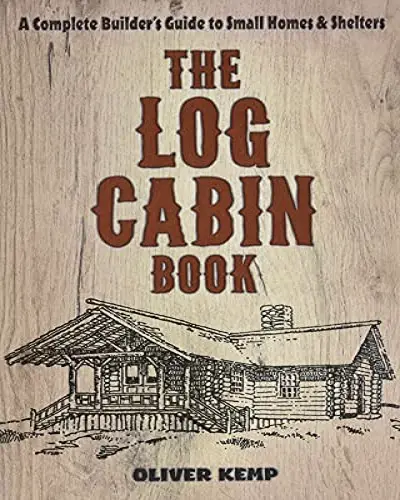
Editor’s choice
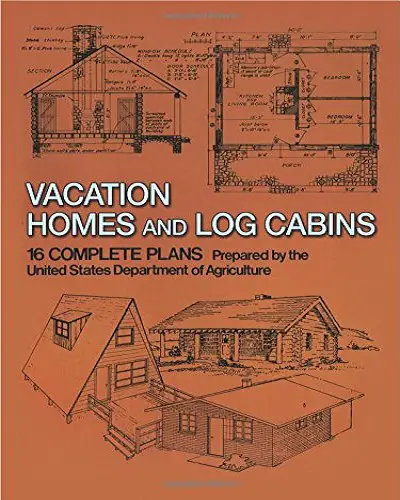
Best value
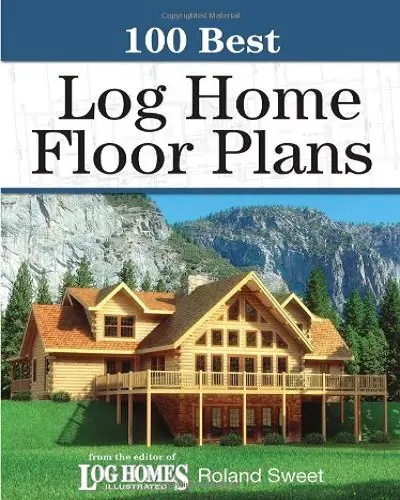
Researching Local Laws
It’s important to research local laws and regulations before building or moving into a tiny house in Virginia to avoid potential legal issues.
This can involve contacting local zoning officials to determine whether tiny homes are allowed in a particular area, as well as researching state and federal regulations related to RVs and mobile homes.
One resource for those interested in tiny houses is the American Tiny House Association (ATHA), which provides information on zoning laws and building codes in different states.
The ATHA also advocates for changes to these laws to make it easier for people to live in tiny houses. There are many examples of successful tiny homes communities throughout the United States, including some in Virginia.
One such community is the Tiny House Village at Lochlyn Hill in Charlottesville. This community features six tiny homes that are available for rent or purchase, with prices ranging from $89,000 to $119,000.
Another example is the Tiny House Hotel at Blue Moon Rising in McHenry, Maryland. While not technically located in Virginia, this hotel is just a short drive away from many parts of the state. It features 14 tiny houses that are available for rent year-round.
According to a survey conducted by The Tiny Life, an online resource for those interested in living in tiny homes, 68% of respondents said that they would be interested in living in a tiny house if it were legal where they lived.
Additionally, 55% of respondents said that affordability was their primary reason for considering a tiny house.
Also see: Can You Convert A Shed Into A Tiny Home?

Understanding Tiny House Laws and Building Codes in Virginia
If you are planning to build a tiny house in Virginia, it’s essential to understand the state’s laws and building codes.
While Virginia does not have specific regulations for tiny houses, they are typically treated as accessory dwelling units (ADUs) or recreational vehicles (RVs).
In this section, we will discuss the requirements for building a tiny home on wheels or a foundation in Virginia.
Building a Tiny House on Wheels
If you plan to build a tiny house on wheels, it must comply with the National Fire Protection Association’s 1192 standard for RVs.
This standard covers safety requirements for RV construction, including electrical systems, plumbing, heating, ventilation, and air conditioning (HVAC), fire safety features, and structural integrity.
To meet these standards, your tiny house must have at least one smoke detector and carbon monoxide detector installed.
It must also have an emergency exit window that is at least 24 inches wide by 18 inches tall and located within six feet of any sleeping area.
Additionally, your tiny home must be built with non-combustible materials or materials that meet fire-resistant standards.
It’s important to note that if you plan to park your tiny house on wheels on private property in Virginia for more than 30 days per year, you may need to obtain a permit from your local zoning department.
Some counties and cities in Virginia have specific zoning ordinances that allow tiny houses as primary residences or ADUs.
Top pick
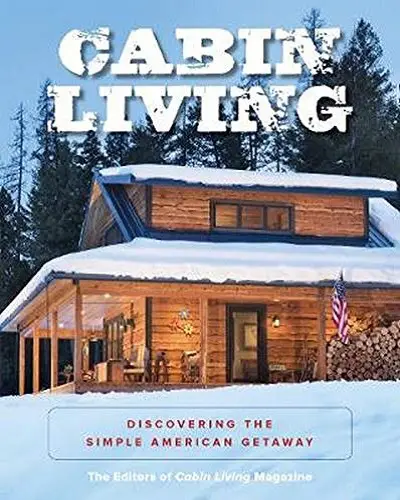
Editor’s choice
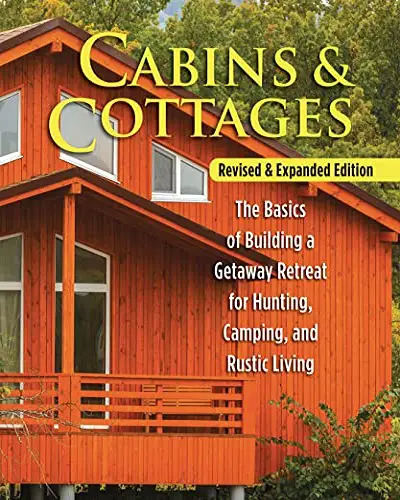
Best value
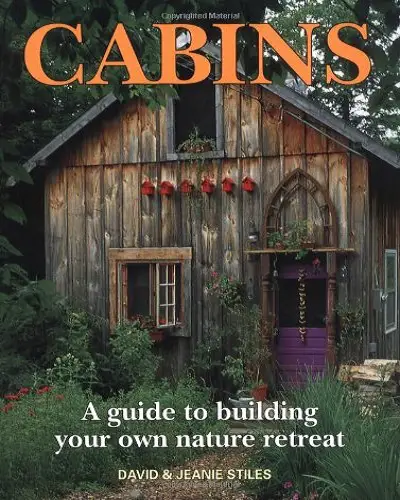
Building a Tiny House on Foundation
If you want to build a tiny house on a foundation in Virginia, it must meet the Virginia Uniform Statewide Building Code (USBC) requirements for residential structures. The USBC sets minimum standards for building design and construction throughout the state.
Your tiny house must comply with all applicable USBC provisions regarding foundation design and construction; framing; roofing; exterior walls; doors and windows; plumbing systems; electrical systems; heating, ventilation, and air conditioning (HVAC); and fire safety features.
It’s important to note that zoning laws vary by county and city in Virginia. Before building or parking your tiny house on a foundation, you should research the local regulations to ensure compliance with zoning ordinances.
Some counties and cities have embraced tiny homes and created specific zoning ordinances to allow them as primary residences or ADUs. Many people in Virginia are interested in living in tiny houses due to their affordability, sustainability, and minimalist lifestyle.
According to a report by the Virginia Housing Development Authority, there is a growing demand for smaller homes in the state. In response, some counties and cities have adopted new zoning ordinances that allow tiny homes as primary residences or ADUs.
For example, Spotsylvania County amended its zoning ordinance in 2019 to allow for tiny houses on foundations as long as they meet certain size requirements.
The county defines a tiny home as a dwelling unit that is no more than 400 square feet of livable space excluding lofts. Similarly, Staunton City has adopted an ordinance that allows for accessory dwelling units (ADUs), which can include tiny houses on foundations.
The ADU must be located within the same lot as the primary residence and cannot exceed 30% of the total floor area of the primary residence.
Also see: How Much Are Shipping Container Homes?

Statewide Tiny House Building Codes: Kaufman Trailers Nationwide
Kaufman Trailers Nationwide is a company that provides custom tiny house trailers that meet Virginia’s statewide building codes and zoning ordinances.
This is important because building codes and zoning ordinances vary from state to state, county to county, and even city to city.
It can be difficult for builders to navigate these regulations on their own, which is why Kaufman Trailers Nationwide offers a solution.
Minimum Square Footage Requirement
In Virginia, the minimum square footage requirement for a legal tiny house is 200 square feet. However, it’s important to note that some counties may have their own specific codes and ordinances that must be followed. Builders should always check with their local government before beginning construction on any project.
Accessing Building Codes
Builders can access the Virginia Uniform Statewide Building Code (USBC) through the Virginia Department of Housing and Community Development’s online library.
The USBC contains regulations related to building safety, energy efficiency, accessibility, and more. It’s important for builders to stay up-to-date on these regulations in order to ensure their projects are compliant with state laws.
Custom Tiny House Trailers
Kaufman Trailers Nationwide offers custom tiny house trailers that are designed specifically for each individual project. This allows builders to create unique homes that meet their clients’ needs while also complying with all relevant building codes and zoning ordinances.
Spray Foam Insulation
Using spray foam insulation can help tiny houses meet energy efficiency requirements and comply with accessory dwelling unit (ADU) regulations in certain areas.
ADUs are additional living units located on the same property as an existing home. They’re becoming increasingly popular as a way for homeowners to generate extra income or provide housing for family members.
Kaufman Trailers Nationwide has received positive reviews from customers who appreciate the company’s attention to detail and commitment to quality. One customer wrote:
“I was impressed by how knowledgeable the staff was about building codes and zoning ordinances. They really took the time to make sure my project was compliant with all relevant regulations.”
According to a report by the National Association of Home Builders, 53% of builders say that building codes are one of the top challenges they face when constructing new homes.
This highlights the importance of working with a company like Kaufman Trailers Nationwide that has expertise in navigating these regulations.
Also see: Trailer For Tiny House

Tiny House Trailer Dealers in Virginia
Iron Eagle, PJ Trailers, and Kaufman Trailers are just a few of the popular brands that tiny house enthusiasts in Virginia can choose from when looking for a trailer to purchase.
These trailers come in various sizes and styles, with new and used options available for sale. There are several factors to consider. One of the most important considerations is weight capacity.
Tiny homes can be quite heavy, so it’s essential to ensure that the trailer you select can handle the weight of your home without compromising safety or stability.
Another critical factor to consider is durability. Your tiny home will likely be on the move frequently, so you’ll want a trailer that can withstand wear and tear over time. Additionally, you’ll need to think about towing requirements.
Make sure that your vehicle can safely tow the weight of your tiny home and its accompanying trailer before making a purchase. Iron Eagle Trailers is one of the most popular brands among tiny house enthusiasts in Virginia.
This company offers custom-built trailers designed specifically for tiny homes, with features like adjustable hitches and reinforced frames to accommodate heavier loads. Iron Eagle also offers both new and used trailers for sale at competitive prices.
PJ Trailers is another brand worth considering when shopping for a tiny house trailer in Virginia. This company has been around since 1991 and specializes in building high-quality trailers suitable for various applications, including hauling tiny homes.
PJ Trailers offers both bumper pull and gooseneck models with varying weight capacities depending on your needs. Kaufman Trailers is yet another reputable brand offering high-quality trailers suitable for tiny homes in Virginia.
This company has been manufacturing trailers since 1987 and has built up an excellent reputation among customers thanks to their commitment to quality craftsmanship.
Kaufman Trailers offers both standard-sized models as well as custom-built options tailored specifically to meet your unique needs.
In addition to these popular brands, there are many other trailer dealers in Virginia that offer a range of options suitable for tiny homes.
Some of these dealers specialize specifically in tiny house trailers, while others offer a more general selection of trailers that can be adapted to suit your needs.
When shopping for a tiny home trailer in Virginia, it’s essential to do your research and compare different options carefully.
Look for reviews from other customers who have purchased from the same dealer or brand you’re considering to get an idea of their experience and satisfaction levels.
It’s also worth noting that some tiny house enthusiasts choose to build their own trailers rather than purchasing pre-made models.
While this option requires more time and effort upfront, it can be an excellent way to save money and ensure that your trailer is precisely tailored to meet your needs.
Also see: Can You Use A Shed As A Tiny House?

Tiny House Building Companies in Virginia
Virginia is a state that offers many opportunities for tiny house enthusiasts to build their dream homes. There are several tiny house building companies in Virginia that specialize in creating custom tiny homes.
For those who want to live a simpler and more sustainable lifestyle. These builders offer a range of services including design, construction, and delivery of tiny homes to their clients.
Tiny House Building Company
One of the most well-known tiny home builders in Virginia is the Tiny House Building Company. This company has been featured on HGTV’s “Tiny House Hunters” and offers a variety of models and customization options for those looking to build a tiny home. They have built over 100 tiny houses since 2015 and have received positive reviews from their clients.
Liberation Tiny Homes
Another popular builder in Virginia is Liberation Tiny Homes. This company focuses on creating eco-friendly and sustainable tiny homes for those interested in off-grid living.
They use high-quality materials such as bamboo flooring, cedar siding, and metal roofing to ensure that their homes are both durable and environmentally friendly.
Tiny House Life LLC
Tiny House Life LLC is another reputable builder that offers custom designs based on the client’s needs and preferences. They also offer financing options for those who need assistance with funding their tiny home project. Their team consists of experienced professionals who are passionate about building unique and functional spaces.
Growing Popularity of Tiny Houses
With the growing popularity of tiny house living, more and more people are choosing to downsize their lives and embrace minimalism. In addition to the benefits of reduced living expenses, living in a smaller space can also lead to less stress, improved mental health, and increased creativity.
Tiny House Communities
In Virginia, there are several communities dedicated to supporting this lifestyle choice. These communities provide an opportunity for like-minded individuals to come together and share resources while enjoying the benefits of community living.
One example is the Lake Walk Tiny Home Community in Gretna, Virginia. This community is located on a 50-acre lake and offers residents access to amenities such as a clubhouse, boat dock, and walking trails.
The community also hosts events such as potlucks, movie nights, and game nights. Another example is the Tiny House Community at Escapees RV Club in Fredericksburg, Virginia.
This community is designed for those who want to live in a tiny home but still have the option to travel. The community offers full hookups for RVs and tiny homes, as well as access to amenities such as a swimming pool and fitness center.
Also see: Shipping Container Homes Michigan

Tiny House Friendly Cities in Virginia
Floyd, Virginia: A Tiny House Haven
Floyd, Virginia has become a popular destination for tiny house enthusiasts due to its relaxed zoning laws and supportive community.
The town’s zoning regulations do not differentiate between traditional homes and tiny houses on wheels, making it an ideal location for those looking to build or park their tiny home.
In addition to its welcoming zoning laws, Floyd boasts a strong community of like-minded individuals who share a passion for sustainable living and alternative housing options.
The town hosts several events throughout the year that cater to the tiny house community, including the Floyd Tiny House Festival.
Staunton, Virginia: Accessory Dwelling Units Allowed
The city of Staunton recently updated its zoning regulations to allow for accessory dwelling units (ADUs), including tiny homes, on residential properties.
This move was made in response to growing interest in alternative housing options and the need for affordable housing in the area.
Staunton’s new regulations require that ADUs be located on a property with an existing primary residence and meet certain size requirements. However, this change opens up opportunities for those looking to downsize or live more sustainably in the city.
Augusta County: No Specific Zoning Regulations
Augusta County has no specific zoning regulations for tiny homes, making it a potential location for those looking to build or park their tiny home.
While this lack of regulation may seem daunting at first glance, it also allows for greater flexibility and creativity when it comes to designing and building a tiny home.
However, it is important to note that Augusta County still has building codes and safety regulations that must be followed when constructing any type of dwelling.
It is recommended that anyone interested in building or parking a tiny home in Augusta County consult with local officials before proceeding.
Top pick
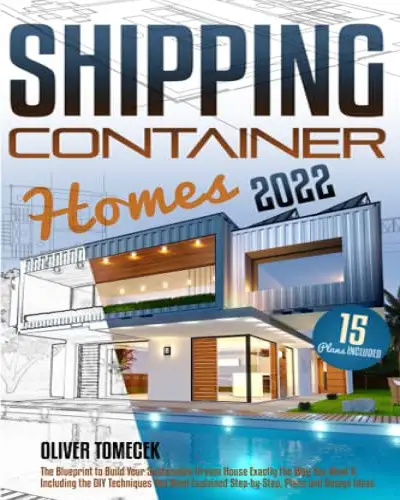
Editor’s choice
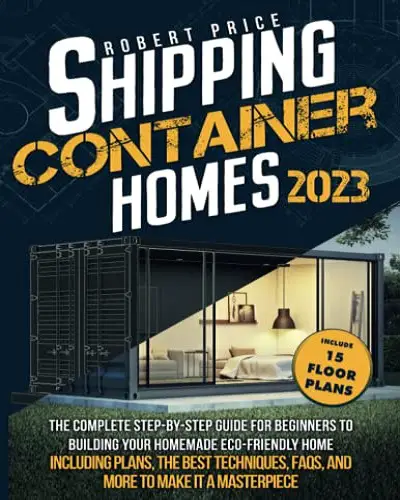
Abingdon: Growing Tiny House Community
The town of Abingdon has a growing tiny home community and hosts an annual Tiny House Fest that attracts visitors from all over the country.
The festival features tiny home tours, workshops, and vendors selling everything from tiny home appliances to handmade furniture.
Abingdon’s supportive community and growing interest in alternative housing options make it an ideal location for those looking to live a more sustainable lifestyle.
However, like Augusta County, it is important to research local zoning laws and building codes before building or parking a tiny home in Abingdon.
Richmond: Strong Tiny House Advocacy
The city of Richmond has a strong community of tiny house advocates and several organizations dedicated to promoting alternative housing options.
These organizations offer resources and support for those interested in downsizing or living more sustainably, including workshops on tiny home construction and design.
Richmond’s commitment to sustainability and affordable housing makes it an attractive location for those looking to build or park a tiny home.
However, like any city, there are zoning regulations that must be followed when constructing or parking a dwelling.
Blacksburg: Unique Parking Opportunity
The town of Blacksburg is home to the Draper Mercantile and Trading Company, which offers a unique opportunity for tiny house owners to park and live in their homes on the property.
The company’s “Tiny Town” features several tiny homes on wheels that are available for rent or purchase.
Blacksburg’s innovative approach to alternative housing options makes it an exciting location for those interested in downsizing or living more sustainably.
However, like with any rental property, it is important to carefully read the terms of the lease agreement before signing on.
Also see: Can Tiny Homes Have Basements?

Examples of Tiny House Communities in Virginia: Piedmont Ecovillage and More
Piedmont Ecovillage is a sustainable community located in Louisa County, Virginia. The community features 24 tiny homes that are designed to be energy-efficient and environmentally friendly.
The tiny homes range from 160 to 320 square feet, making them perfect for individuals or small families who want to live sustainably while minimizing their environmental footprint.
The community has a focus on education and offers workshops and classes on topics such as permaculture and sustainable living.
This emphasis on education is one of the things that sets Piedmont Ecovillage apart from other tiny house communities in Virginia.
By educating residents about sustainable living practices, the community is helping to create a more sustainable future for everyone.
Shared Amenities at Piedmont Ecovillage
Residents of Piedmont Ecovillage have access to shared amenities such as a community garden, a playground, and a common house for gatherings and events. These shared spaces promote social interaction among residents and foster a sense of community within the village.
The community garden is an especially important feature of Piedmont Ecovillage because it allows residents to grow their own food using organic methods. This not only promotes sustainability but also helps residents save money on groceries.
The playground is another great feature of the village because it provides children with a safe place to play and interact with other kids in the community.
This can be especially beneficial for families who are new to the area or who have recently downsized into a tiny home.
The common house at Piedmont Ecovillage serves as the heart of the community. It’s where residents come together for meals, meetings, workshops, and other events.
The common house features a full kitchen, dining room, living room, library, laundry facilities, guest rooms, and even an exercise room.
Top pick
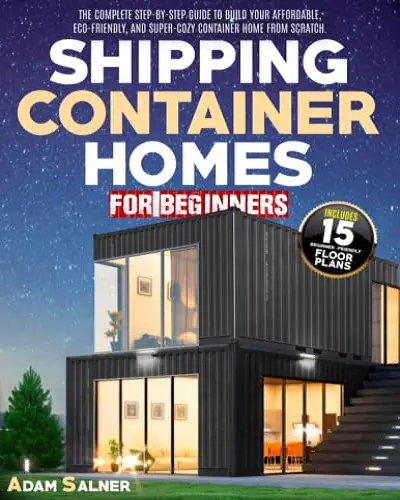
Editor’s choice
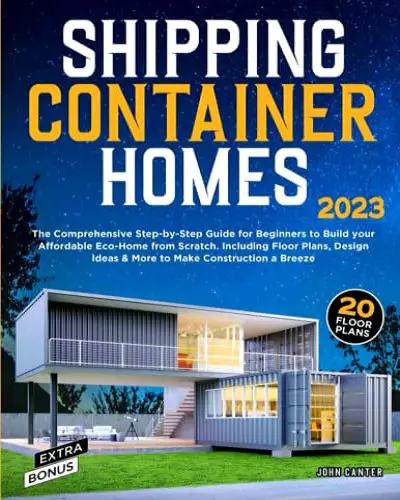
Sustainability at Piedmont Ecovillage
One of the primary goals of Piedmont Ecovillage is to promote sustainability. The community achieves this goal in a number of ways, including:
- Energy-efficient design: The tiny homes at Piedmont Ecovillage are designed to be energy-efficient, with features such as insulation, double-pane windows, and high-efficiency appliances.
- Renewable energy: The community uses renewable energy sources such as solar panels and wind turbines to power the common house and other shared spaces.
- Water conservation: Residents of Piedmont Ecovillage use rainwater harvesting systems to collect water for irrigation and other non-potable uses.
- Waste reduction: The community has a composting program that allows residents to turn food scraps and yard waste into nutrient-rich soil for the community garden.
Other Tiny House Communities in Virginia
While Piedmont Ecovillage is one of the most well-known tiny house communities in Virginia, there are several others worth mentioning.
Also see: Tiny House You Can Tow

Exploring the Possibilities of Tiny House Communities in Virginia
Tiny house communities are gaining popularity across the United States, and Virginia is no exception. With its diverse areas and beautiful landscapes, Virginia is a great place to explore the possibilities of tiny home living.
These communities offer a unique lifestyle experience that is perfect for people who love communal living and want to be part of a close-knit community.
Communal Living
Living in a tiny house community means enjoying all the benefits of communal living. The sense of belonging that comes with being part of a community can be incredibly fulfilling. It’s an opportunity to build relationships with like-minded people who share your values and interests.
Community Gardens
One of the most significant advantages of tiny house communities in Virginia is the access to community gardens. These gardens provide residents with fresh produce while also promoting sustainable living practices.
They’re an excellent way to connect with nature while also building relationships with other members of the community.
Shared Spaces
Another benefit of tiny house communities is access to shared spaces. These spaces can include common areas such as kitchens, dining rooms, and lounges where residents can gather and socialize. Shared spaces encourage interaction between neighbors, which helps foster a sense of community.
Backyard Areas
Many tiny house communities in Virginia offer backyard areas that are perfect for families and individuals who want to live in a family-oriented environment. These outdoor spaces provide opportunities for children to play safely while parents socialize nearby.
Alternative to Traditional Family Homes
The development of tiny house communities in Virginia is an exciting project that offers an alternative to traditional family homes. The cost savings associated with tiny homes make them an affordable option for many families who might not otherwise be able to afford homeownership.
Promoting Sustainable Living Off-Grid
Tiny homes also promote sustainable living off-grid while enjoying the beauty of the beach or countryside that Virginia has on offer. By reducing energy consumption, these homes help preserve natural resources while also providing a comfortable living space for residents.
Top pick
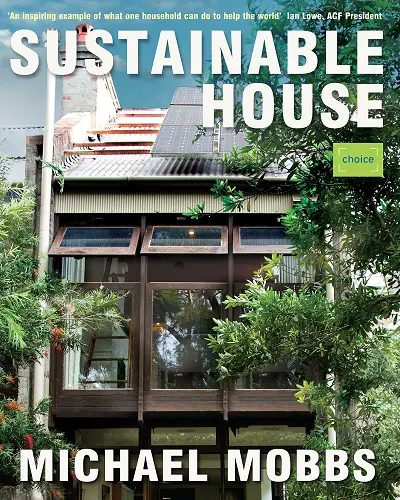
Editor’s choice
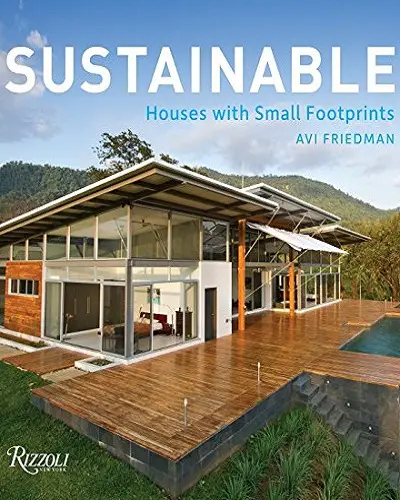
Best value
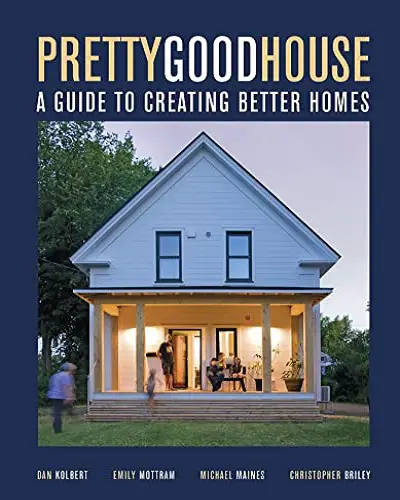
Tiny House Builders
If you’re looking for a tiny house community in Virginia, you’re in luck! Virginia has some of the best tiny house builder in the country. These builders specialize in creating small homes that are efficient, functional, and beautiful.
Tiny houses are a great way to reduce your carbon footprint and live a more sustainable lifestyle. They’re also a great way to save money on housing costs.
Virginia is home to several tiny house communities, where people can live in small homes and enjoy a sense of community with like-minded individuals.
These communities often have shared resources, such as gardens, communal spaces, and workshops.
They’re a great way to live a simpler, more intentional lifestyle. If you’re interested in tiny house living, Virginia is a great place to start your search.
1. Tiny House Building Company Address: 16192 Coastal Hwy, Lewes, DE 19958 Phone number: (757) 387-6432
2. Hobbitat Spaces Address: 1525 Keymar Rd, Keymar, MD 21757 Phone number: (443) 821-7400
3. Humble Houses Address: 109 Braxton Court, Williamsburg, VA 23188 Phone number: (757) 707-8453
4. Virginia Tiny Homes Address: 1957 Pocahontas Trail, Quinton, VA 23141 Phone number: (804) 314-9144
5. Tiny Homes of Virginia Address: 3214 Lee Hwy, Weyers Cave, VA 24486 Phone number: (540) 324-4282.
Also see: Tiny Homes Texas

FAQ
1. What are the benefits of living in a tiny house community in Virginia?
Living in a tiny house community in Virginia can offer a range of benefits. For one, it can be more affordable than living in a traditional home or apartment.
2. How do I find tiny house communities in Virginia?
There are a few different ways to find tiny house communities in Virginia. One option is to search online for tiny house communities in Virginia.
3. What are the regulations for building and living in a tiny house community in Virginia?
The regulations for building and living in a tiny house community in Virginia can vary depending on the location and zoning laws.
4. What are the average costs associated with living in a tiny house community in Virginia?
The costs associated with living in a tiny house community in Virginia can vary depending on the location, size of the home, and amenities provided.
5. What amenities are typically available in tiny house communities in Virginia?
The amenities available in tiny house communities in Virginia can vary depending on the community.
Top pick
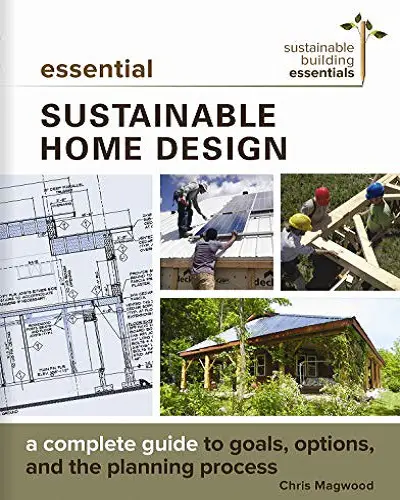
Editor’s choice
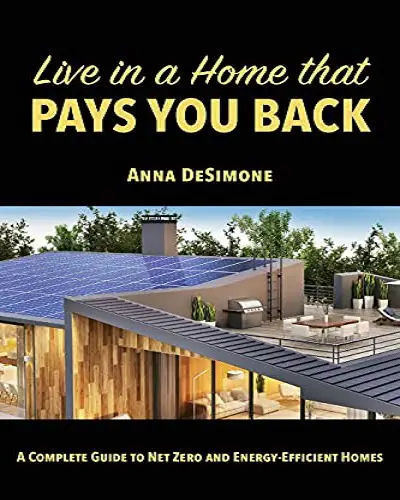
Best value
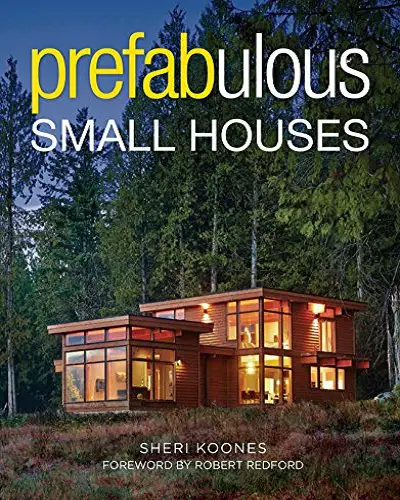
Final Thoughts
In conclusion, tiny house communities in Virginia offer a unique and affordable living experience for those looking to downsize and live a more sustainable lifestyle.
With the benefits of lower costs, reduced environmental impact, and a strong sense of community, it’s no wonder that tiny homes have become increasingly popular across the state.
However, before diving into this lifestyle, it’s important to consider the legalities and building codes surrounding tiny houses in Virginia. While there are some challenges to overcome.
There are also resources available such as Kaufman Trailers Nationwide for statewide building codes and local builders like Tiny House Building Companies in Virginia.
It’s also worth noting that not all cities in Virginia are friendly towards tiny houses. It’s important to do your research beforehand if you’re looking for a specific location to settle down in.
Some examples of tiny house communities in Virginia include Piedmont Ecovillage and more. Overall, living in a tiny home community can be an excellent choice for those seeking simplicity and sustainability.
With careful planning and consideration of the legalities involved, it is possible to build your dream home on a smaller scale while enjoying the many benefits of this lifestyle.
Also see: Tiny Homes For Sale Georgia

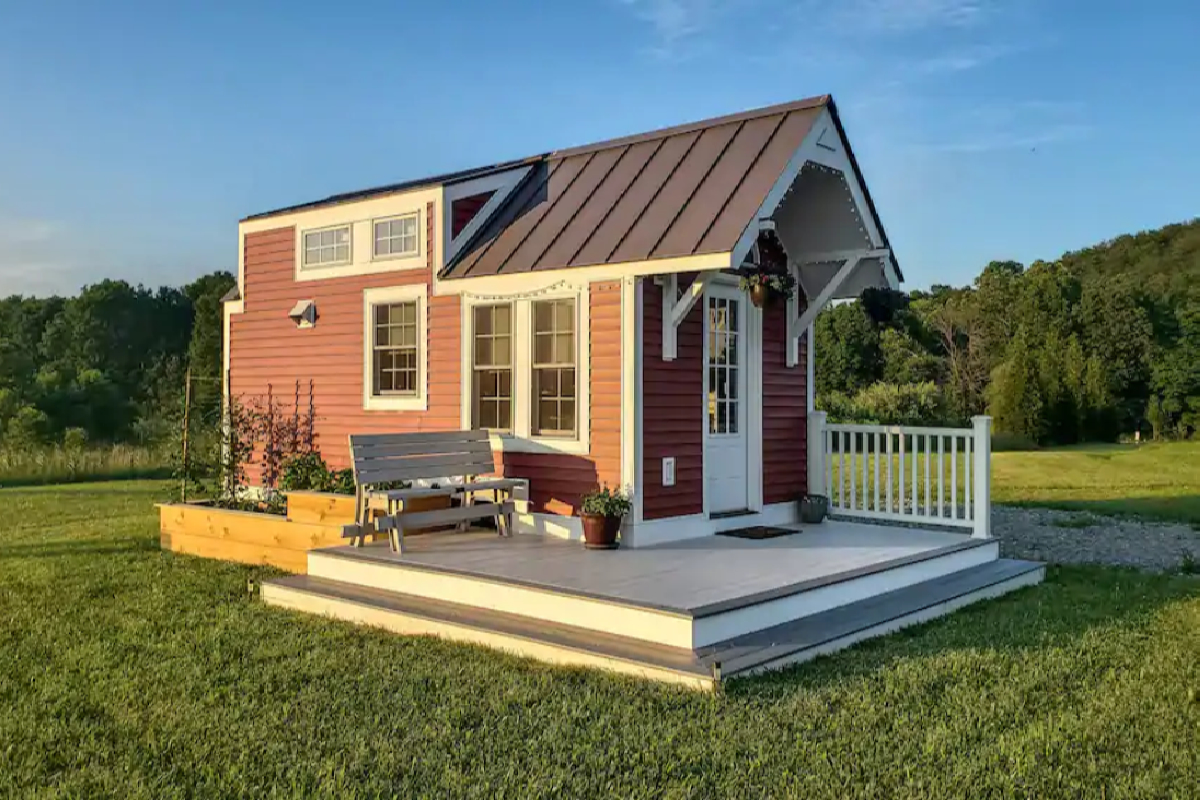
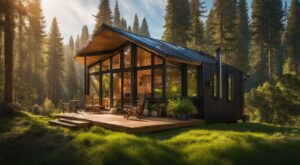
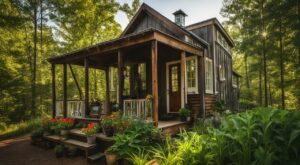
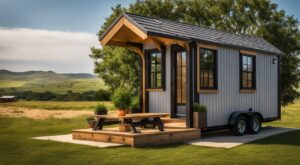
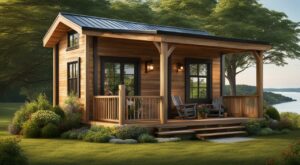
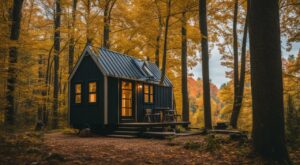
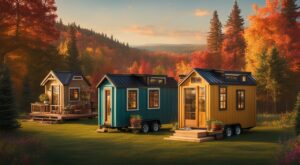
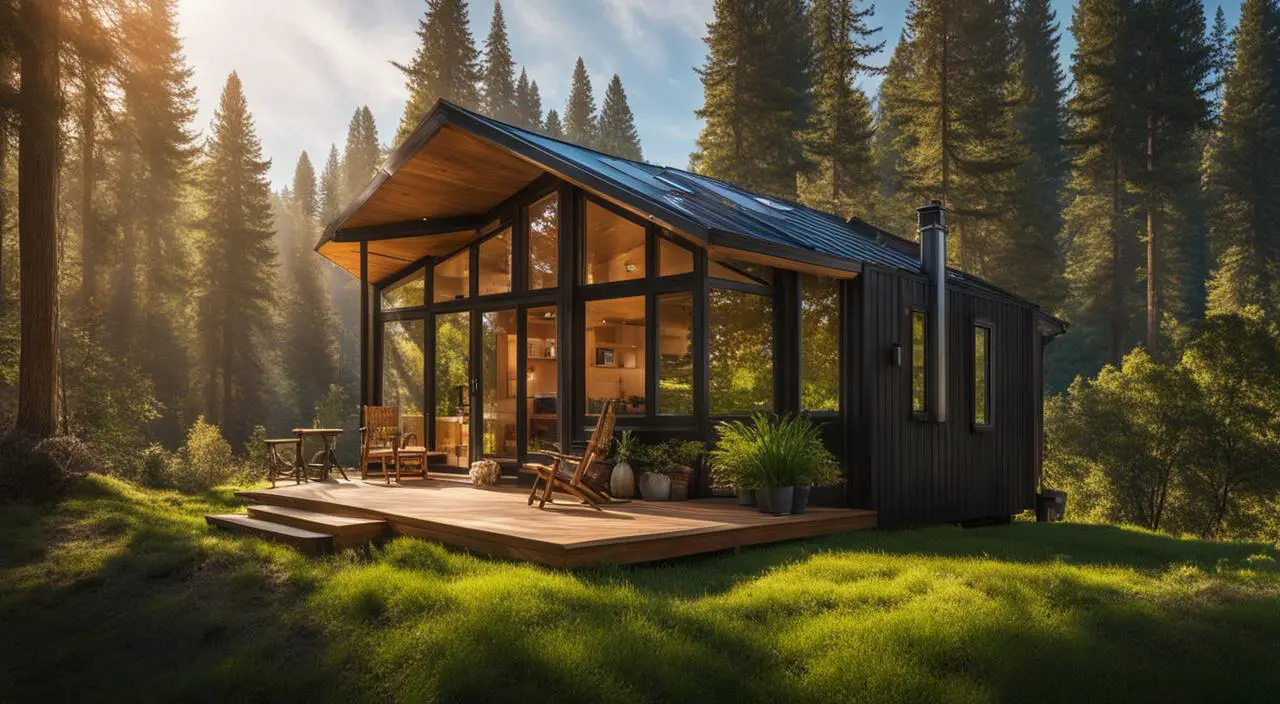
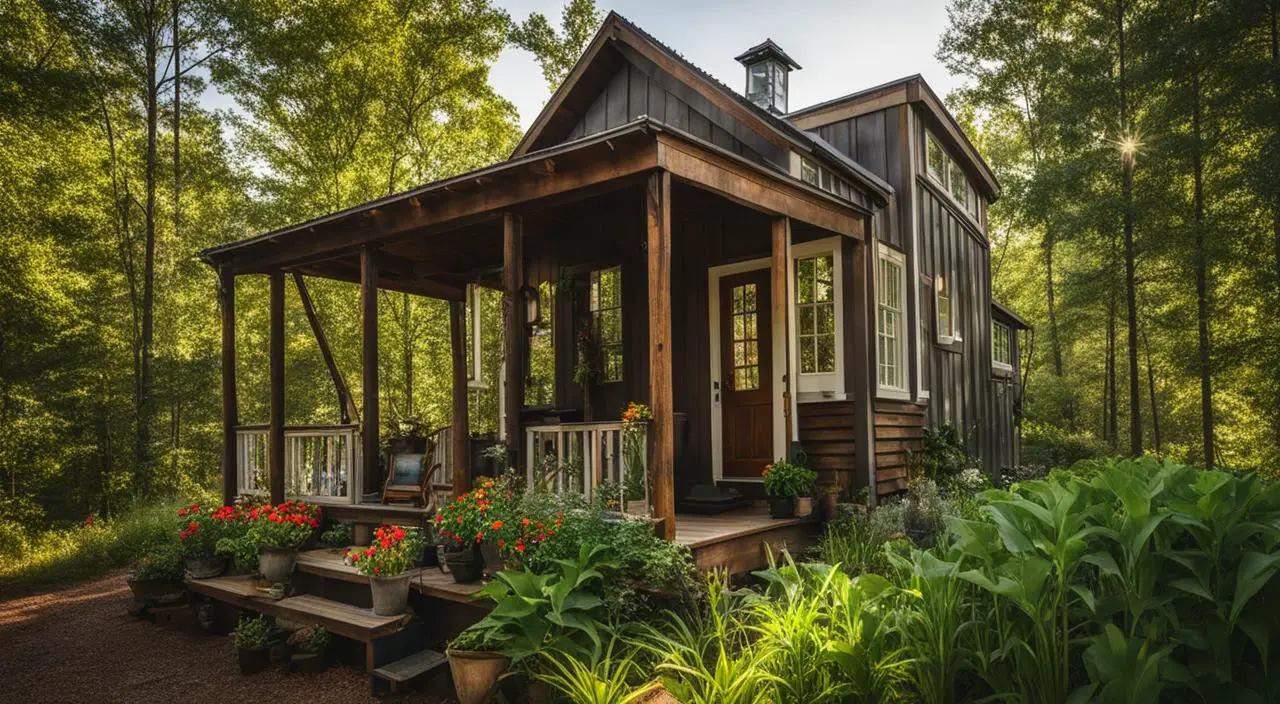
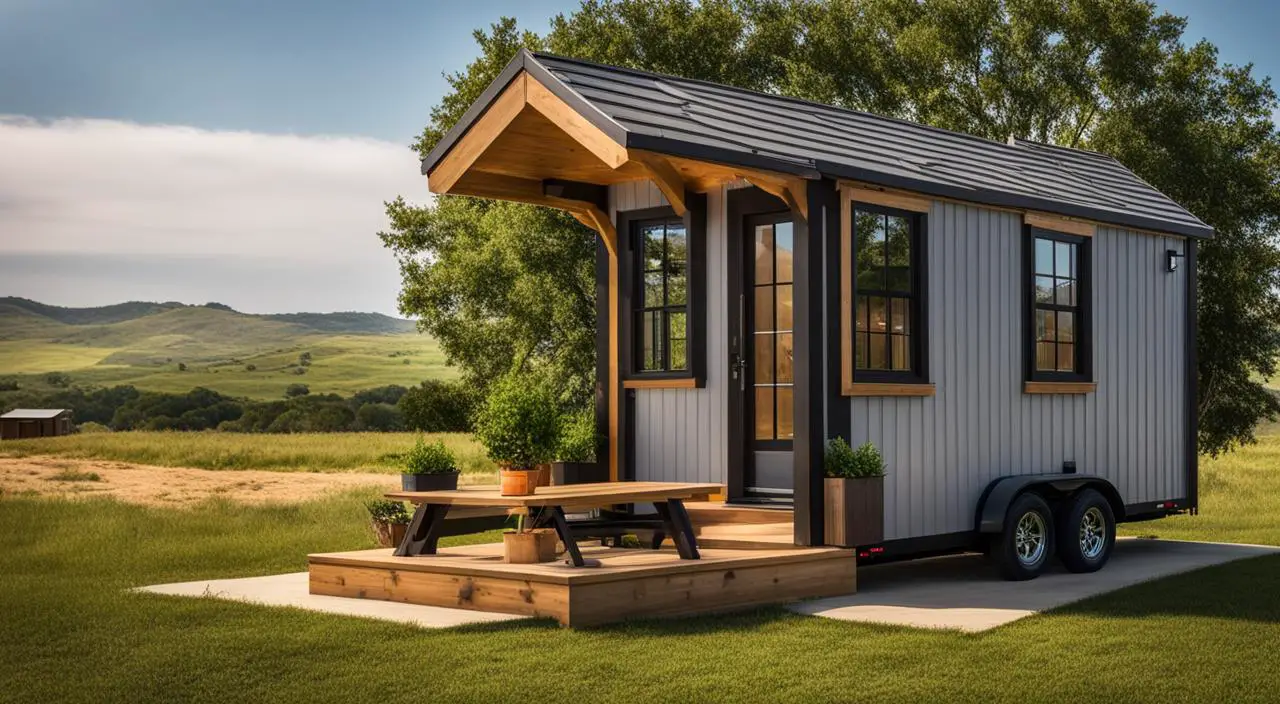
Leave a Reply